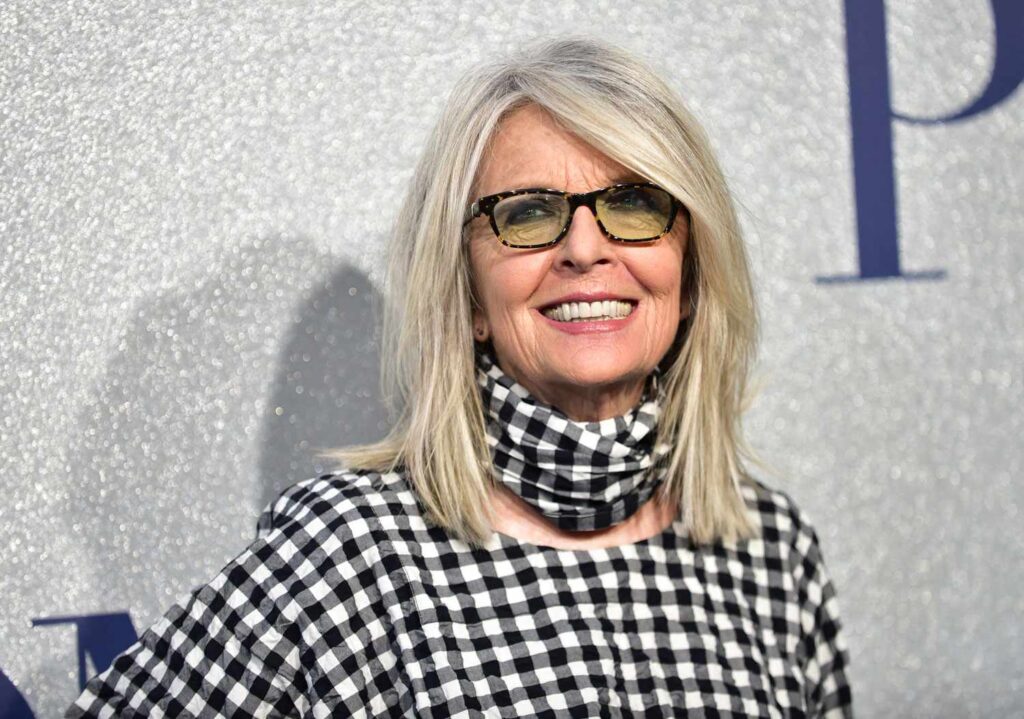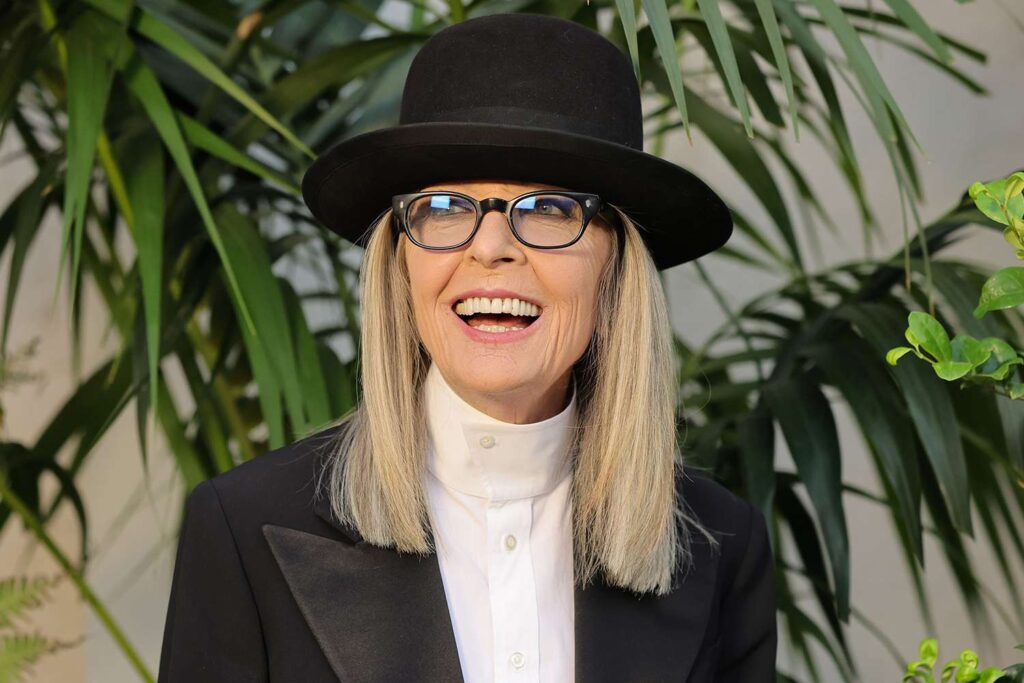Diane Keaton’s passing on October 11, 2025, has sent a wave of sorrow through Hollywood and beyond. The news of her death at age 79, confirmed by her family and shared by trusted outlets like People and The New York Times, brought the world to pause, triggering a flood of tributes, memories, and heartfelt reflections. For many, Keaton wasn’t just an Oscar-winning actress or a fashion icon—she was a singular spirit, a bright light, and a woman who left a distinct mark on every person she touched.
Among the most moving tributes came from her co-stars in the beloved 1996 comedy The First Wives Club, Goldie Hawn and Bette Midler. The film, which remains a cultural touchstone nearly three decades later, was a testament to female resilience, friendship, and power. And behind the scenes, it forged real, lasting bonds between the three actresses. That makes their words now, in the wake of Keaton’s death, all the more powerful.
Goldie Hawn’s tribute, posted on Instagram just hours after the announcement of Keaton’s passing, read more like a love letter than a celebrity statement. “Diane, we aren’t ready to lose you,” Hawn began, capturing a collective feeling many fans shared. “You’ve left us with a trail of fairy dust, filled with particles of light and memories beyond imagination.”
Hawn’s words carried the grief of a longtime friend who had shared laughter, early morning coffee runs, and moments of sheer silliness with someone she deeply loved. She recalled their time on The First Wives Club with vivid detail—those early makeup trailer chats, the joy they found on set, and the enduring warmth they carried even after the cameras stopped rolling. “It was a roller coaster of love,” Hawn wrote. “We agreed to grow old together, and one day, maybe live together with all our girlfriends. Well, we never got to live together, but we did grow older together.”
There’s something deeply human in that line. So often, we make playful pacts with our friends in youth—imagining growing old side by side, still laughing about the same stories, sharing a house filled with books, dogs, and music. Hawn’s acknowledgment that this dream, while not realized in the way they imagined, still lived in the spirit of their long friendship, cuts to the heart. “Shine your fairy dust up there, girlfriend,” she ended. “I’m going to miss the hell out of you.”
Bette Midler’s tribute carried its own weight of affection and heartbreak. She described Keaton as “brilliant, beautiful” and “extraordinary”—and perhaps most significantly, “a complete original.” That word, original, appears again and again in the outpouring of remembrances. And for good reason: Diane Keaton was utterly, unapologetically herself.
Midler noted something many in the industry quietly whisper but few say aloud: the competitiveness that often haunts female stardom. Yet, Keaton remained untouched by it. “She was hilarious, a complete original, and completely without guile, or any of the competitiveness one would have expected from such a star,” Midler shared. “What you saw was who she was … oh, la, lala!”
In many ways, that sentence sums up Keaton’s magic. She never tried to fit the mold. She didn’t chase fame or cultivate a persona. Her eccentricities weren’t cultivated—they were natural. Her humor was spontaneous. Her style—those wide-brimmed hats, tailored suits, and unflinching black-and-white ensembles—became iconic because they were hers and hers alone.
Other stars echoed these sentiments. Reese Witherspoon, speaking emotionally during her Hello Sunshine Shine Away event in Los Angeles, reflected on Keaton’s originality. “If you just close your mind and think of Diane Keaton… she is just incredible and indelible,” she said, visibly moved. “The thing I just loved about her is she was such an original.”
And it’s true: just thinking of Keaton conjures a very specific image—not just of a woman, but of a spirit. That husky laugh. The quirky cadence of her speech. Her tendency to get giddy in interviews. Her loyalty to her craft and her fierce independence in life. She was, and is, unforgettable.

Keaton’s career spanned decades and defied trends. She first broke into the spotlight as Kay Adams in The Godfather series, holding her own opposite acting giants. But it was Annie Hall that solidified her place in cinema history. The role earned her an Academy Award and changed the look and feel of romantic comedy forever. Woody Allen’s neurotic Manhattan needed her whimsy, her chaos, and her charm. The character of Annie was a mirror to Keaton’s real-life quirks—and the public fell in love.
Yet, despite that early success, Keaton never chased the Hollywood game in the conventional sense. She picked projects based on instinct. Some were mainstream hits. Others were passion pieces. She directed, she wrote, she photographed. She lived in beautiful homes filled with old books and architectural relics. She adopted children as a single woman at a time when it was still uncommon. She loved deeply, yet famously never married. And she seemed perfectly content with that.
In an industry that often demands conformity, Diane Keaton was a proud contradiction. Glamorous yet self-effacing. Talented yet humble. Famous yet fiercely private. Those contradictions made her relatable, real, and oddly comforting. You didn’t look at Keaton and think, “I wish I were her.” You thought, “I wish I could be that true to myself.”
It’s not surprising, then, that tributes to Keaton weren’t limited to just former co-stars or collaborators. They came from across the creative spectrum. Jane Fonda, another icon of American cinema, described her as “a force of nature, endlessly curious, and always following her own compass.” Steve Martin, who co-starred with her in the Father of the Bride series, simply called her “a dream scene partner” and “a joy to know.”
Even Saturday Night Live—long a pop culture barometer—paid tribute. In the Oct. 11 episode that aired just hours after the news broke, the show displayed a black-and-white photo of Keaton near the end, a quiet moment of respect for someone who had made millions laugh and cry over the decades.
Still, there is something deeply sad about her departure—not only because of her talent but because she was still so vibrantly herself until the end. While her family has not released the cause of death, reports suggest it came after a rapid decline in health that few outside her close circle knew about. In typical Keaton fashion, she kept her struggles private, not wanting to make a spectacle of her illness.
That privacy, though, didn’t keep her loved ones from feeling the full weight of the loss. In Hawn’s and Midler’s tributes, there’s a sense not just of mourning but of disbelief. How do you say goodbye to someone who never really seemed bound by the rules of time? Someone who, even in her later years, still carried the wide-eyed wonder of her younger self?
Hawn said it best: “How do we say goodbye? What words can come to mind when your heart is broken?” The answer, of course, is that you don’t. Not really. You remember. You replay the scenes. You tell the stories. You laugh again at the jokes she told. You watch Annie Hall and Something’s Gotta Give and The First Wives Club not just for entertainment but for comfort.
In many ways, Keaton’s legacy isn’t just in the films she made, but in the lives she touched, the actresses she inspired, and the countless people who felt seen and understood through her characters. She brought complexity to women onscreen—allowing them to be silly and smart, romantic and messy, elegant and eccentric all at once. She carved out space for authenticity in an often plastic world.
That’s why the grief feels so personal for so many. Because Diane Keaton wasn’t just a star. She was an old friend—even if we’d never met her. We knew her laugh, her voice, her style. We knew her warmth, even through the screen. And now, as her co-stars and friends grieve a personal loss, the world grieves with them.

There is a line in The First Wives Club that has gained new resonance in the days following Keaton’s death. It’s spoken by her character, Annie, in a moment of vulnerability and empowerment: “I’ve been in therapy for a thousand years, and I’m finally starting to get it. Life isn’t about losing. It’s about letting go.”
And maybe, in time, that’s what we’ll learn to do—let go of the ache, but hold on to the light. Because as Goldie Hawn so beautifully put it, Diane Keaton has left us with fairy dust. And fairy dust, as everyone knows, never really goes away. It just keeps floating, twinkling in the corners of our memories, reminding us that someone remarkable was here.
And always will be.










